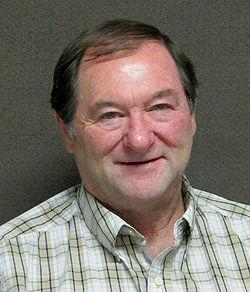People are really stubborn, especially when they figure they have been right about something and then then are challenged on that belief by the facts that are placed in front of them.
In our society we have always heard the beliefs about old people being stubborn and set in their ways. There is some truth to this. When you have lived a long life and something has worked for you, it is not only hard to change but it is hard to justify any change either.
But this elder type of thinking, that many like to point to as antiquated or out of touch, permeates much of America today, among all age groups.
Daniel Patrick Moynihan, an American political icon of the last 30 years of the 20th century, once said, “Everyone is entitled to their own opinion, but not their own set of facts.” It seems in these days of wild stories, spread through social media and other internet sites, facts are not important anymore. Only beliefs are. That’s because if you have a belief, someone, somewhere, will have a set of “facts” to prove it.
And so opinions, so often not based on real facts, have become ever more radical and strung out. Besides that, in this day and age, even when real facts are presented many people don’t want to hear it. It seems most people want to hear only their truth and not the whole truth.
Internet is not enough
I ran into a young man not long ago who was doing a paper for a course he was taking. It was a historical paper, but not about subject that took place long ago and has been dusted over by time, but a more recent occurrence. We discussed how he was doing his paper and I asked him about what sources he had used.
Now mind you, this young man is well educated and intelligent. He said he had researched it on the internet. I asked him about other sources besides that that proved his point and he had none. When I asked him about the possibility of looking in other places concerning information, he said “I feel if it’s not on the internet then it either isn’t a very good source or its not worth the time.”
I was shocked by someone who was so smart to be so shallow in terms of his academic rigor. What he was researching happened not that long ago, yet long enough that it occurred before the internet really took off. He should have done some primary research on the paper too. It happened to be about a local event in his area, so he could have gone so far as to talk to people who were involved, besides looking up other information about it through record searches, government meeting minutes, etc. He didn’t want to do any of that. It was obvious that what he had, he felt was good enough.
Don’t know what they don’t know
This is a real problem in our society today. The touch of a button and people think they know all about a subject. But often they don’t and for a number of reasons.
First is the fact that the internet is filled with a lot of half truths, speculation and even outright lies. President Trump often talks about “fake news” that emanates from the traditional media and he is right at times, but more factless reports can be seen on the internet than anywhere on television or in newspapers.
Next is that people, particularly when on the internet, gravitate toward sites that contain what they already believe or in some cases that which they want to believe. They do this rather than exploring all the information available. If one reads a newspaper or magazine, on the same page as a story they are interested in and agree with, there may be a story that disputes another point of view they have.
On television, news broadcasts might affirm a person’s belief on one issue in a story, but the next part of the news show may draw attention to something the reader disagrees with. This is the way we get to see things that can change our point of view for the better, because we know more.
This same thing can be found on the internet, too, but seldom on a site that supports one point of view. On most web sites that feature a bias there is often not anything about an opposition opinion, except to vilify it.
It has always been true if one wants to really know about something they should look at multiple sources of information. When a news story or issue catches my eye I usually want to see how other sources besides my primary traditionally primary one are reporting on it. More importantly, I want to see what the people on all sides of an issue have to say about it.
Be diligent
Over the last 50 years I have done this often. And doing that has frequently resulted in me changing my mind about an issue, a person or how an event unraveled. When one weighs all the real facts about an issue, on the proper scale of a mind that is open to change, life and what is going on around us becomes much more clear. There will always be those that tug you one way or another in the vast media world, but if you know the real story, the true facts, you can generally see the agendas they are forwarding in an attempt to twist you in the wind.
So Americans need to do that research on issues they believe in. Research for the sake of finding truth isn’t about making you feel justified about an opinion you may hold, but it is about supporting an opinion that you will develop over a long period of time when the truth becomes evident to you.

